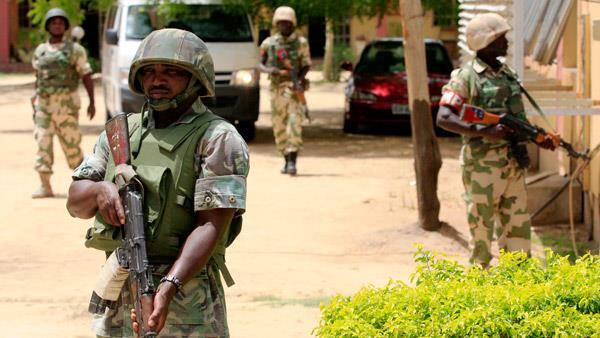OPINION
Language Chauvinism in the naming of Nigerian Military operations

The latest military operation in Kano keeps me wondering why almost always that the names given to these operations are only in English and Hausa. Before you ask like Juliet “What is in a name?” consider the meaning attached to issues in multicultural Nigeria. Ours is more complex than the animosity between the Montague and the Capulet in Shakespeare’s ‘Romeo and Juliet’.
The war against Boko Haram in the Northeast is ‘Operation Lafiya Dole’ (‘Compulsory Peace’ in Hausa). We heard of the ‘Operation Crocodile Smile’ and ‘Operation Delta Safe’ in the Niger Delta.
Those in the Southeast were treated to ‘Operation Python Dance’ meant to combat robbers, kidnappers, secessionists and criminally minded persons. In the South-west, we had the Air Force launch airstrikes on criminal enclaves in the name of ‘Operation Awatse’ (Hausa word for ‘Scatter’).
The latest is the Operation Harbin Kunama 11 (‘Scorpion Sting’ in Hausa), at the dreaded Falgore Forest in Kano to tackle cattle rustling, kidnapping and insurgency. An earlier operation against cattle rustling in the Northwest and North-Central was called Operation Sharan Daji (From Hausa, meaning ‘Sweeping the Bush’).
If the aim of such naming is anything to go by, only Hausa and English are being promoted. Yes, English along with Hausa, Igbo and Yoruba are our lingua franca. We’ve had a long history with English that it had become part of us so much that some use it as a measurement of intelligence.
It is understood that the notion of the Niger-Delta being multi-ethnic and multilingual may be why English was the choice. That of the Southeast should have been in Igbo since it is the dominant language there. I don’t get why the Southwest which is almost entirely Yorùbá has a Hausa name for a military operation within it.
Empirical research by eminent language scholar, Prof Adenike Akinjobi has shown that majority of northerners have a positive attitude towards their Hausa lingua franca unlike southerners. They were said to want their language adopted as the Nigerian national language. This is where language chauvinism comes in. Language chauvinism occurs where one thinks their language is superior to others.
It would be appropriate to factor in the issue of language attitude. I have observed that a Northerner is twenty times more likely to post on the social media in Hausa than a Southerner would post in his indigenous language.
A Northerner is more likely to listen to a radio programme in Hausa and/or other native language programmes than a Southerner to any of the southern native languages. You greet your fellow Yoruba with clearly written Ilàa Gọ̀mbọ̀ on his face in ‘Pọtákòt’ or ‘Sáríà’ and that Prof Agbàgbeilé would want you to ‘spik Hinglis’.
However the language attitude, it is inexcusably wrong that only one indigenous language is being used in naming those military operations. Isn’t the Federal Government indirectly affirming the superiority of Hausa to other Nigerian languages? Does the naming pattern have anything to do with the language proficiency of those on whom it is being used? If we must promote indigenous languages, we should not use government apparatus to promote one at the detriment of others.
***Amoo, works with the pen from Lagos, Nigeria




 Davido's Net Worth & Lifestyle
Davido's Net Worth & Lifestyle 
